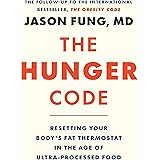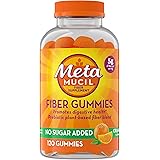We’ve all been there: scrolling through countless articles and videos, desperately seeking that one magical solution for weight loss. Perhaps you’ve tried restrictive diets that promise quick fixes, only to find yourself back where you started, feeling even more frustrated. It’s easy to get lost in a sea of conflicting advice, especially when so many “tips” lack scientific backing.
But what if there was a simpler, more sustainable path? What if the key to lasting change wasn’t about deprivation, but about embracing small, science-backed habits? The good news is, researchers have indeed uncovered powerful, evidence-based strategies that genuinely work. Building on the insights shared in the video above, this guide will delve deeper into these practical, science-based weight loss tips, providing you with actionable steps to transform your health journey.
Unlocking Lasting Results: Science-Based Weight Loss Tips for Sustainable Health
Navigating the world of weight management can feel overwhelming, with countless myths and fads muddying the waters. Yet, by focusing on strategies supported by scientific research, we can cut through the noise and implement changes that truly make a difference. These effective weight loss strategies don’t rely on extreme measures but rather on fundamental principles of nutrition, exercise, and lifestyle that foster overall well-being. Let’s explore seven crucial areas where small adjustments can yield significant, long-term benefits for your health and weight.
Eliminate Liquid Calories for Easier Weight Management
When we think about calorie intake, our minds often jump to food, overlooking a significant source: beverages. Sugary drinks, including sodas, sweetened teas, and even many fruit juices, are notorious for packing a caloric punch without providing much satiety. Studies consistently highlight liquid sugar calories as one of the most fattening aspects of the modern diet, contributing substantially to overall calorie excess. For instance, research indicates that sugar-sweetened beverages are linked to a staggering 60% increased risk of obesity in children for each daily serving, a statistic that underscores their profound impact.
Unlike solid foods, liquid calories don’t trigger the same fullness signals in our brains, making it easy to consume large amounts without feeling satisfied. This means you could drink hundreds of calories from a large soda or a “healthy” smoothie and still feel hungry shortly after, leading to an overall higher daily calorie intake. Furthermore, even seemingly natural fruit juices contain sugar levels comparable to soft drinks like Coca-Cola, despite being perceived as healthier options. While whole fruit provides fiber and nutrients, fruit juice strips away much of that beneficial fiber, leaving concentrated sugar that can spike blood glucose levels and hinder effective weight loss efforts. Prioritizing water and unsweetened beverages is a simple yet powerful step towards reducing hidden calories and improving your daily nutrition.
Hydration: A Simple Yet Powerful Weight Loss Tool
Conversely, the impact of drinking more water, especially strategically throughout the day, cannot be overstated in a successful weight loss journey. Water is essential for every bodily function and, importantly, can act as a natural appetite suppressant. By filling your stomach, water helps signal fullness to your brain, which in turn reduces the likelihood of overeating at meal times.
Scientific evidence strongly supports this strategy. One particular study demonstrated that participants who drank a half liter (approximately 17 ounces) of water about 30 minutes before meals consumed fewer calories during their subsequent meal and lost an impressive 44% more weight over a specific period. Interestingly, a controlled trial involving 62 overweight and obese women participating in a 24-week weight loss program revealed even more compelling insights. Those who consciously swapped out diet and sugar-free drinks for plain water after their lunch not only lost more weight but also experienced significant improvements in their blood glucose and insulin levels, highlighting water’s broad health benefits beyond just calorie reduction. Making water your primary beverage choice over any other, including artificial sweeteners, sets a solid foundation for improved hydration and better weight management.
Strategize Your Snacks: Keep Healthy Food Within Reach
One of the biggest hurdles in any weight loss or healthy eating plan is battling unexpected hunger pangs or intense food cravings. This is where strategic planning truly makes a difference. Keeping healthy, convenient food options readily available is a proactive step that can prevent impulsive, unhealthy choices when hunger strikes. Imagine reaching for a handful of nuts or a piece of whole fruit instead of a bag of chips simply because it’s the easiest option available.
Having a stash of portable and simple-to-prepare snacks means you’re always prepared, whether you’re at work, running errands, or simply at home. Excellent examples include whole fruits like apples or bananas, a small bag of unsalted almonds or walnuts, pre-cut baby carrots or celery sticks, a container of Greek yogurt, or even a couple of hardboiled eggs. By dedicating time to food preparation and planning, such as washing and cutting vegetables or portioning nuts into small bags at the beginning of the week, you significantly increase your chances of sticking to your healthy eating goals and fostering sustainable weight loss.
The Psychology of Portions: Harnessing Smaller Plates
It might sound like a simple trick, but the size of your plate can profoundly influence how much you eat, often without you even realizing it. This phenomenon, widely studied by psychologists, leverages visual illusions to help manage portion sizes more effectively. When you use a larger plate, a standard portion of food appears smaller and less satisfying, prompting you to serve yourself more. Conversely, on a smaller plate, the same amount of food looks more substantial and filling, subtly encouraging you to eat less.
This psychological effect, known as the Delboeuf illusion, demonstrates that our perception of size is heavily influenced by surrounding objects. Studies confirm that automatically, people tend to eat fewer calories when served on smaller plates. This isn’t about deprivation; it’s about tricking your brain into feeling more satisfied with appropriate portions. Consider swapping out those really large dinner plates or bowls for slightly smaller alternatives at home. This effortless adjustment can make a significant impact on your daily calorie intake, making it one of the easiest and most sustainable weight loss tips to implement.
Build Strength, Boost Metabolism: The Power of Resistance Training
When embarking on a weight loss journey, many people focus solely on cardiovascular exercise and calorie restriction. However, one of the most detrimental side effects of dieting, especially severe calorie restriction, is muscle loss and a subsequent slowdown in metabolism. Muscle tissue is metabolically active, meaning it burns more calories at rest compared to fat tissue. Losing muscle mass therefore directly lowers your basal metabolic rate, making it harder to continue losing weight and easier to regain it.
This is precisely why incorporating some form of resistance exercise, such as lifting weights or performing bodyweight exercises, is absolutely critical. Studies unequivocally show that weight lifting helps preserve precious muscle mass and keeps your metabolism high, even during periods of calorie deficit. Moreover, beyond its metabolic benefits, building muscle also improves body composition, enhances strength, and contributes to a more toned physique. It’s not just about losing “fat”; it’s about improving what’s beneath the surface, ensuring that your body is strong, healthy, and resilient. Even simple routines like squats, push-ups, planks, and lunges done a few times a week can make a massive difference in your sustainable weight loss efforts and overall fitness.
Prioritize Quality Sleep for Effective Weight Loss
Often overlooked, quality sleep is a foundational pillar of health that is just as important as good nutrition and regular exercise, particularly when it comes to weight management. The profound impact of inadequate sleep on our bodies and weight is truly significant. In fact, insufficient sleep duration is recognized as one of the strongest risk factors for obesity across all age groups.
Compelling research highlights this connection: one study found that short sleep duration raised the risk of obesity by an astonishing 89% in children and 55% in adults. This isn’t merely about feeling tired; poor sleep fundamentally disrupts our hormonal balance, specifically affecting hunger hormones like ghrelin and leptin. Ghrelin, the “hunger hormone,” increases with sleep deprivation, making you feel hungrier, while leptin, the “satiety hormone,” decreases, leading to reduced feelings of fullness. This biochemical imbalance not only increases hunger and cravings but also creates a physiological tendency for weight gain. Consciously planning your evenings to ensure you go to bed a bit earlier and establish a consistent sleep schedule can be one of the most impactful, yet simplest, weight loss tips you implement.
Shift Your Mindset: Embrace Healthy Living Over “Dieting”
Perhaps the most transformative advice for long-term weight management is to abandon the traditional concept of “dieting.” The biggest problem with most diets is their inherent unsustainability; they are often restrictive, temporary, and rarely lead to lasting results. Data consistently shows that individuals who engage in frequent dieting are often predictors of future weight gain, illustrating a disheartening cycle of loss and regain.
Instead of viewing food as an enemy or focusing on deprivation, cultivate a mindset centered on nourishment and overall well-being. Make it your primary goal to become a healthier, happier, and fitter individual, understanding that sustainable weight loss is a natural side effect of this holistic approach. Focus on incorporating nutrient-dense foods, listening to your body’s hunger and fullness cues, and enjoying physical activity. By prioritizing consistent healthy habits and viewing food as fuel and pleasure, rather than a source of guilt or strict rules, you foster a positive relationship with your body and food, leading to more enduring and satisfying results in your journey towards effective weight loss and vibrant health.











